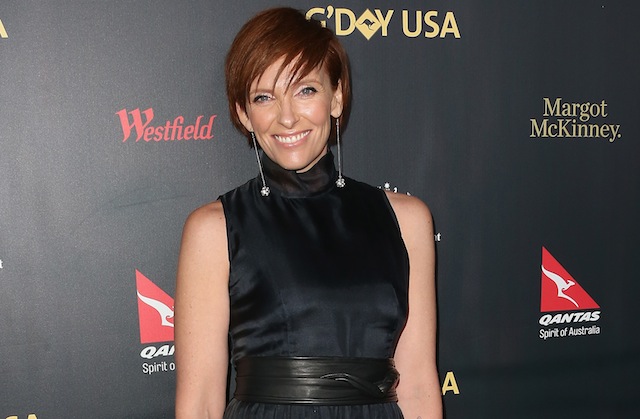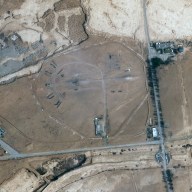Toni Collette is no stranger to playing down and out. Just last year she starred in “Miss You Already,” as a woman grouchily staring into the face of terminal cancer. She made that dramedy around the same time she shot “Glassland,” a tiny, stark Irish drama in which she tears into the role of a raging alcoholic. When she took the part, she didn’t know how difficult filming would be. RELATED: Alison Brie talks “How to Be Single” and falling for Dave Franco “I realize now I was scared to ‘go there,’” the Oscar-nominated actress, 43, tells us over e-mail. “Once we started it was like free-falling — driving fast and erratically with no brakes. When we finished shooting it felt very abrupt. Suddenly I was on a plane leaving Dublin and my body reacted for me. I became violently ill for 24 hours. I still feel bad for the poor [British Airways] staff who had to clean up after me.” Collette only spent six days on set, her character, Jean, being a key supporting character. She’s the mother of the hero, John (Jack Reynor), a young cabbie who, among other ailments, has to tend to his sickly mum as she relapses, then is told if she continues using she’ll die. RELATED: Interview: Ryan Reynolds talks “Deadpool” and being done with superheroes Still, Jean is a fount of life: a screaming maniac when she’s off the wagon, but personable, even funny when she’s on.“Very few people sit around like sadsacks,” Collette says of Jean. “It’s more interesting to play someone with more interesting survival skills.” The film arrives at a time when there’s growing understanding and empathy for addicts, with society inching away from a blame-the-victim mentality. “This film is honest in every way,” she explains. “There’s no blame, no manipulating the audience into siding with one particularly point of view. You see and feel the good, the bad and the ugly.” Still, the combination of a short shooting time and the subject’s intensity and the character’s wild mood swings meant it wasn’t easy — and not just with a seven-minute monologue in which Jean explains, with almost scary candor, her history and her defense of why she abandoned her other son, who has Down Syndrome. “There was no one scene that wasn’t difficult,” Collette says. “Usually, in a movie, they ease you in with some easier scenes before hitting the gritty, tough ones, the more challenging ones. No such luxury on ‘Glassland.’” Still, the difficulty, especially in playing characters who aren’t always sympathetic, is what drives her, she says: “It’s fun for me to play people unlike me. There is much about Jean that I don’t admire. And that’s fine.” RELATED: Interview: A.O. Scott talks film criticism, his defense of “Freddy Got Fingered” She’s also no stranger to accents, being an Aussie who regularly plays Americans and Brits. Here Collette, who lived in Ireland for a time in her 20s, adopts a Dublin accent that isn’t forced.
“The accent in that particular part of Dublin was not the lilting and charming accent that most people are familiar with,” she says. “I had spent more time than most in Ireland, but the accent was still unfamiliar to me. I found it intimidating especially being so fond of the place, but most because I didn’t want to let my friends or the film down. It would have been mortifying to f— it up.” For “Glassland,” Collette found herself working with a writer-director, Gerard Barrett, who’s very young. (His next film, “Brain on Fire,” will be bigger, as it features Chloe Grace Moretz, Jenny Slate and Tyler Perry). Collette has always been attracted to auteurs (Todd Haynes, M. Night Shyamalan, Spike Lee, Peter Greenaway, etc.), long as they have a vision. “I like to work with good filmmakers, no matter their experience. Past experience doesn’t always indicate how good a director will be,” Collette explains. “I have always been open to working with new directors. They are often excellent and not set in their ways. ‘Glassland’ reminded me why I started making films in the first place. Jumping around the world, making movies big and small, does mean being fairly nomadic. How does she approach globetrotting now that she has a family? “One foot in front of the other, mixed with a substantial amount of guilt,” she replies.
Toni Collette likes playing unlikable characters

Getty Images
Follow Matt Prigge on Twitter @mattprigge


















